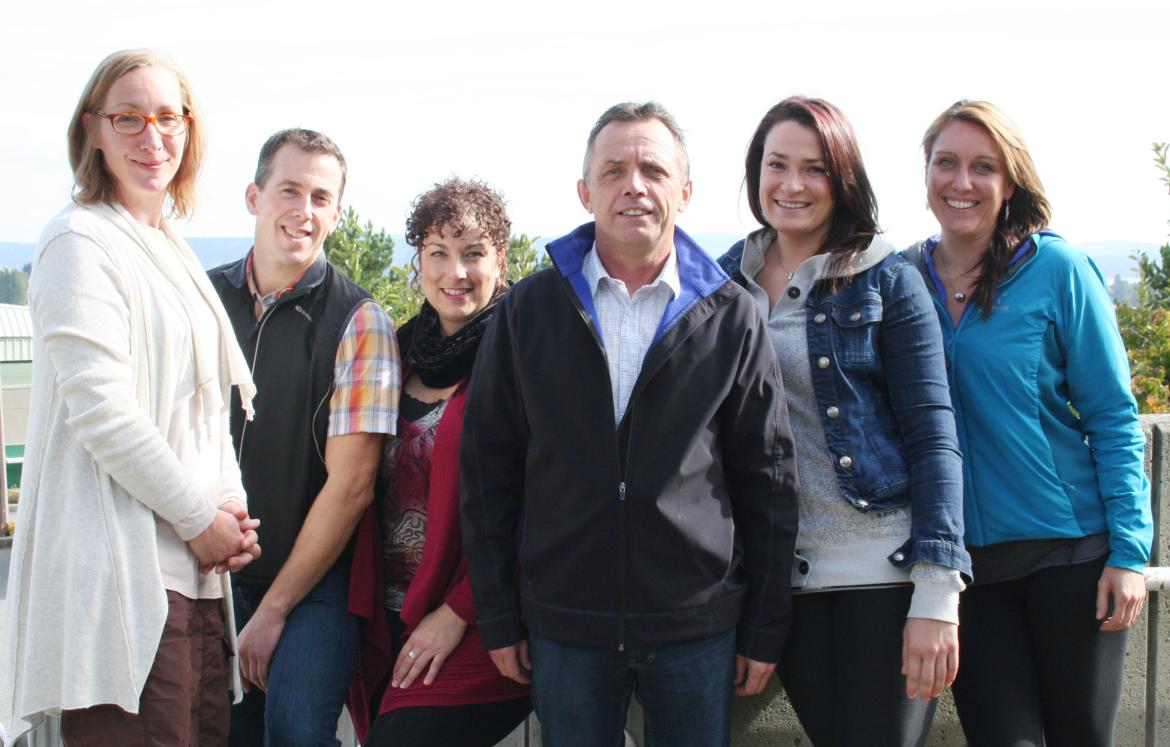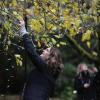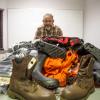
October 15, 2013 - 8:00am
Five Vancouver Island University students in their final year of the Bachelor of Science in Nursing (BSN) program are interested in doing all they can to reduce the stigma that homeless people encounter. And they want to learn more about how the role of a nurse practitioner can impact the health of the homeless.
The five students, Marnie Squires, Sophie Minette-Crow, Mark Mohun-Smith, Josh Mabey and Jennifer Etty, all call the Cowichan Valley home, and chose Warmland House in Duncan as the site of their fourth year community practice placement and research project.
Etty suggested working with Warmland House to the group of students, who all liked the idea of giving back to their home community through working with the clients and staff at the homeless shelter and transition house facility.
“In any setting of nursing we’re going to be working with individuals who maybe have a challenge with housing, nutrition, or addiction, whatever it is that marginalizes them,” says Etty. “It’s good to really remove that stigma when you deal with the person and ask, ‘what does the person really need?’”
The students dedicated time between January and April 2013 in work experience with clients and staff at Warmland House. They observed how the range of services provided under one roof impacts the homeless adults who have found their way there. In particular, the students became interested in learning more about how the nurse practitioner role interacts with clients at Warmland, along with other in-house services in place to help homeless people at the facility.
“Warmland offers a lot of different programs under one roof,” says Mabey. “They meet their basic needs of shelter, safety, food, clothing, but they also have a kitchen, a foot care clinic, and a nurse practitioner working there twice a week. That’s the role we’re interested in looking at in the research.”
The five students have developed a research proposal that seeks to investigate how the nurse practitioner works with the homeless within the larger therapeutic community at Warmland, which will provide a starting point for a comparison of how this health care role functions in similar settings within the region.
“We all felt there was a great sense of community at Warmland,” says Mohun-Smith. “The biggest service I think they offer is their setting, which is unique from what we can gather. It’s a place that offers a family feel for clients, a community feel.”
“It’s really opened our eyes,” says Minette-Crow. “The experience builds empathy and compassion for the situations homeless people are in.”
Squires, who worked for many years as a licensed practical nurse prior to beginning the BSc in Nursing program, has worked with the homeless in a hospital setting before, and says she is impressed by how Warmland provides links to the community along with a supportive environment for its clients.
“As nursing students we want to reduce the stigma,” she says.
The group of students will spend time during Homelessness Action Week, Oct. 13 to 17, putting together a presentation they plan to make to first year students in the BSN program, sharing some of their impressions on a health care work experience involving homeless people.
Once the research is completed and shared with their professors and student colleagues, the group is hoping the relationship developed with Warmland House will lead to other BSN students working and learning at the facility.
“The experience has really increased our knowledge about harm reduction,” says Minette-Crow. “It’s meeting a client where they’re at, no matter what their situation, and working to achieve the highest level of health given their circumstances.”
-30-
Media Contact:
Shari Bishop Bowes, Communications Officer, Vancouver Island University
P:250.740.6443 C: 250.618.1535 E: Communications@viu.ca T: @viunews
Tags: In the Community






